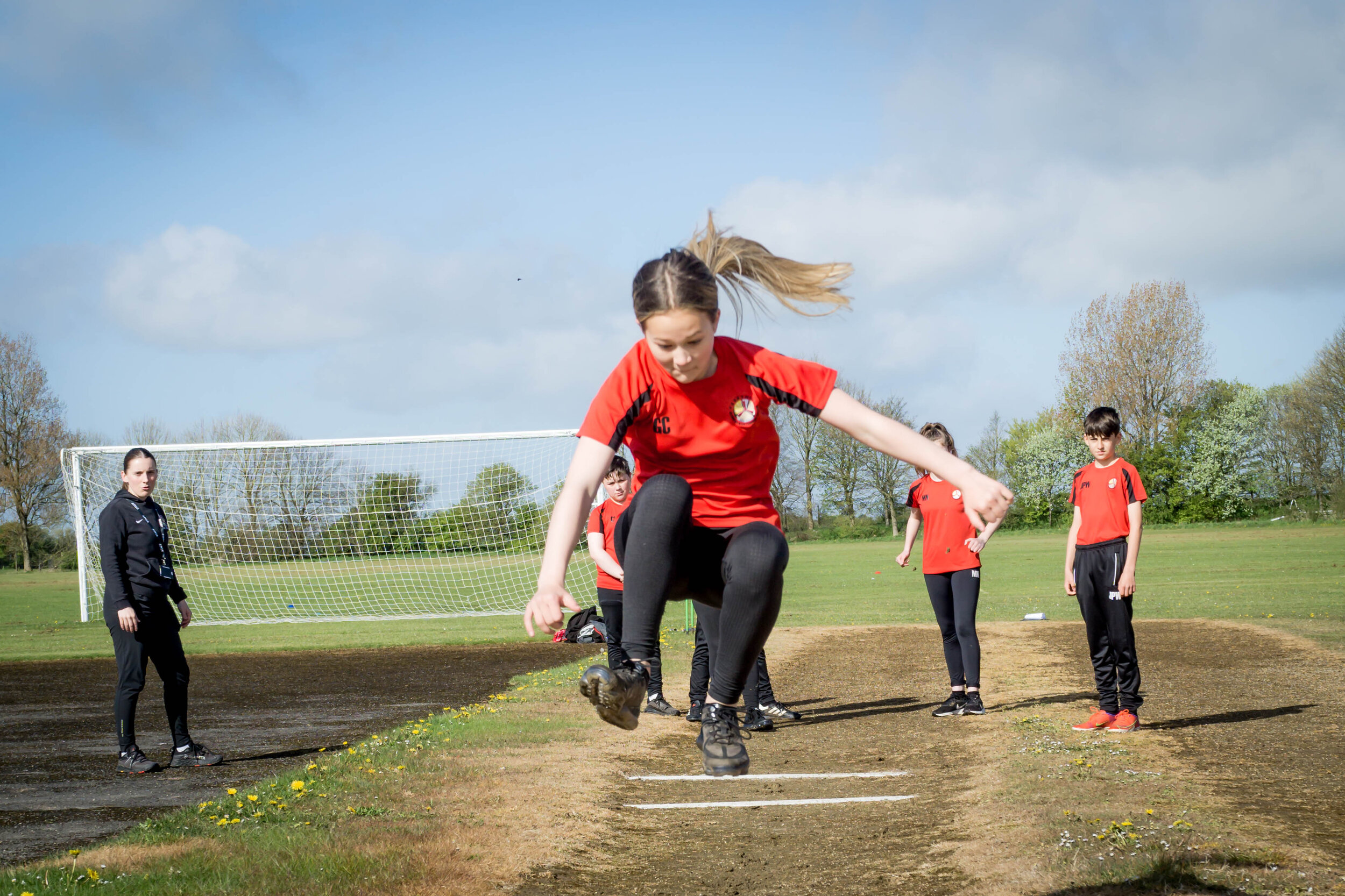
Physical Education
Why should students study your subject?
Key Stage 3
In KS3 PE students will use tactics and strategies to overcome opponents in direct
competition through games. Students will develop technique and improve performance
across a range of sports. Students will explore different dance styles and take part in
problem solving activities (OAA). In addition, students will analyse performance looking at
improvements made.
Students will explore a range of sports including football, netball, basketball,
trampolining, dance, gymnastics, OAA, handball, volleyball, fitness, cricket, athletics,
tennis, rounders/softball and badminton.
Key Stage 4
In KS4 PE students will use tactics and strategies to overcome opponents in direct
competition through games. Students will develop technique and improve performance
across a range of sports. Students will take part in OAA with intellectual and physical
challenge. In addition, students will evaluate performance looking at improvements made.
A more flexible approach is provided in KS4 and students are provided with
pathways. The main sports include OAA, fitness, trampolining and games.
What skills does your subject teach?
Students explore a range of sports to develop their leadership, teamwork and performance. Lessons are fun and engaging with progressive drills, game-based teaching and mini competitions.
Why is your subject useful for the world of work, or future employment? What kind of jobs could someone do using your subject? How can students take your subject further, eg at college, university, the world of work etc
Post 16:
BTEC Sport
A-level PE
University
There are a number of sports courses: Sport and Exercise Science, Sports Coaching, Sports Marketing, Sports Psychology, Physiotherapy, Sports Nutritionist, Teaching, Personal Training.
What is your overall curriculum intent?
Physical Education at this school contributes to the whole school curriculum intent by developing pupil knowledge of health and well-being as well as literacy and numeracy. We aim to develop the understanding of a wide variety of sports which originated from around the world as well as developing an understanding of anatomy and physiology, health and fitness and leadership. We encourage students to be able to perform and lead in a number of sports. We place great importance on developing skills in a number of sports, working as part of a team and the development of leadership skills.
The overarching intent of our curriculum for PE is to:
• Develop competence to excel in a broad range of physical activities.
• Ensure students are physically active for sustained periods of time.
• Ensure students engage in competitive sports and activities.
• Encourage students to lead a healthy, active lifestyle.
• Make learning, exploring and investigating the subject fun and enjoyable.
• Increase students’ understanding of the rules, regulations and officials in a number of sports.
• Encourage students to develop leadership skills by providing opportunities to for students to take the lead role.
• Challenge students to strive for success and achievement.
• Develop sporting etiquette, so students uphold respect and fairness.
• Develop confidence and a ‘can-do’ attitude to learning; develop a positive growth-mindset.
• Equip pupils with key skills in order to communicate appropriately in physical education.
• Make a significant contribution to the personal, social, moral, cultural and intellectual and development of students.
• Provide an environment which is purposeful, yet caring and supportive.
• Encourage students to take pride in and for everything they say, do and, in terms of work, produce and create.
• Develop an understanding of examination PE, including the development of literacy and numeracy.
How is it implemented?
We teach PE via a series of carefully sequenced units which are organised around the National Curriculum and requirements for BTEC Sport. In both Key Stage 3 and 4, the PE department teaches a broad range of physical activities. Physical activities taught include football, netball, basketball, rugby, hockey, volleyball, handball, trampolining, dance, gymnastics, fitness, rounders, softball, athletics, tennis, badminton and table tennis. Students explore rules, regulations and officials as well the development of key skills and leadership. Leadership and officiating is developed with more able students. Health and fitness is also implemented where appropriate to encourage students to lead a healthy, active lifestyle. BTEC Sport is taught as an examination subject through 4 units: Health and Fitness, Practical Sports, Leadership and Applying Principles of Training. Our 5 year plan shows links to the skills required to succeed in BTEC Sport and how these are developed from Key Stage 3.
End points for each unit, in terms of the knowledge we intend pupils to acquire, are clearly defined in the MTP and shared with pupils and parents/carers.
Throughout KS3 departmental planning will identify the key knowledge concepts to be learned by pupils, embedded in long term memory and to be checked by teachers during lessons and via more formal assessment.
Examination Information
Pearson BTEC Sport Level 1 and 2 First Award – Pearson Edexcel
3 units of coursework:
Unit 2: Practical Performance in Sport
Unit 3: Applying the Principles of Personal Training
Unit 6: Leading Sports Activities
1 unit assessed externally. 1 hour 15 minutes examination marked out of 60. Online.
Unit 1: Fitness for Sport and Exercise
How can someone improve in your subject?
BTEC First Sport Study and Exam Practice Revision Guide
